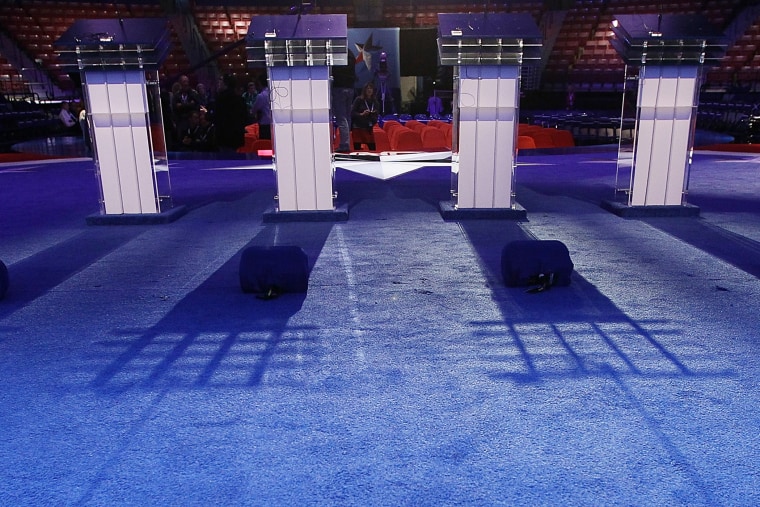STELTER: What about the issue of fact checking that has been talked about so much in the past few weeks? Does the commission want Lester Holt to fact check?BROWN: The commission asks independent, smart journalists to be the moderators and we let them decide how they're going to do this. But I have to say, in our history, the moderators have found it appropriate to allow the candidates to be the ones that talk about the accuracy or the fairness of what the other candidate or candidates might have said.I think, personally, if you are starting to get into the fact-check, I'm not sure what is the big fact, and what is a little fact? And if you and I [have] information, does your source about the unemployment rate agree with my source?
Debate commission director balks at real-time fact checking
Janet Brown believes Donald Trump and Hillary Clinton may have different "sources" about the unemployment rate.

Heading into the first presidential debate tonight, Donald Trump and his campaign team have made it quite clear they don't want moderator Lester Holt to do any fact checking during the event. That's not exactly surprising: the Republican nominee has an unfortunate habit of lying, and it'd be embarrassing for Trump if his falsehoods were exposed in real time.But outside of Republican circles, many are concerned that if moderators overlook obvious whoppers, and allow the debates to turn into literal "he said, she said" disputes, the public won't actually learn anything.Janet Brown, the Commission on Presidential Debates' executive director, talked to CNN's Brian Stelter yesterday about the broader dispute, and she seemed to come down firmly on Trump's side.
I'm not entirely clear what Brown meant when she drew a distinction between "big" and "little" facts, but it's her comment about the unemployment rate that seemed especially problematic.There are, to be sure, a vast number of issues on which subjectivity is part of the debate. The truth can have nuance and be heavily dependent on context and specific details. If a moderator, or the director of the debate commission, feels hesitant about weighing in on issues in which the facts aren't 100% clear, it's understandable.But consider Janet Brown's chosen example: the unemployment rate. It's probably the worst example she could have come up with.Let's say Donald Trump tells voters tonight that the nation's unemployment rate is 40%, at which point Hillary Clinton pushes back and says it's actually 4.9%. By Brown's reasoning, an independent journalist -- who knows the truth -- should say nothing because the candidates may have different "sources."Except, that doesn't make any sense. The Labor Department's Bureau of Labor Statistics is responsible for determining the unemployment rate, and according to the BLS, it's 4.9%.It's objective, not subjective. There's quantifiable evidence. There's only one source for the data. It's exactly the sort of thing that lends itself to the easiest and most defensible form of fact-checking.If pointing out facts this obvious is a bridge too far for the executive director of the Commission on Presidential Debates, candidates are effectively being told they can say literally anything without fear of pushback during the event.